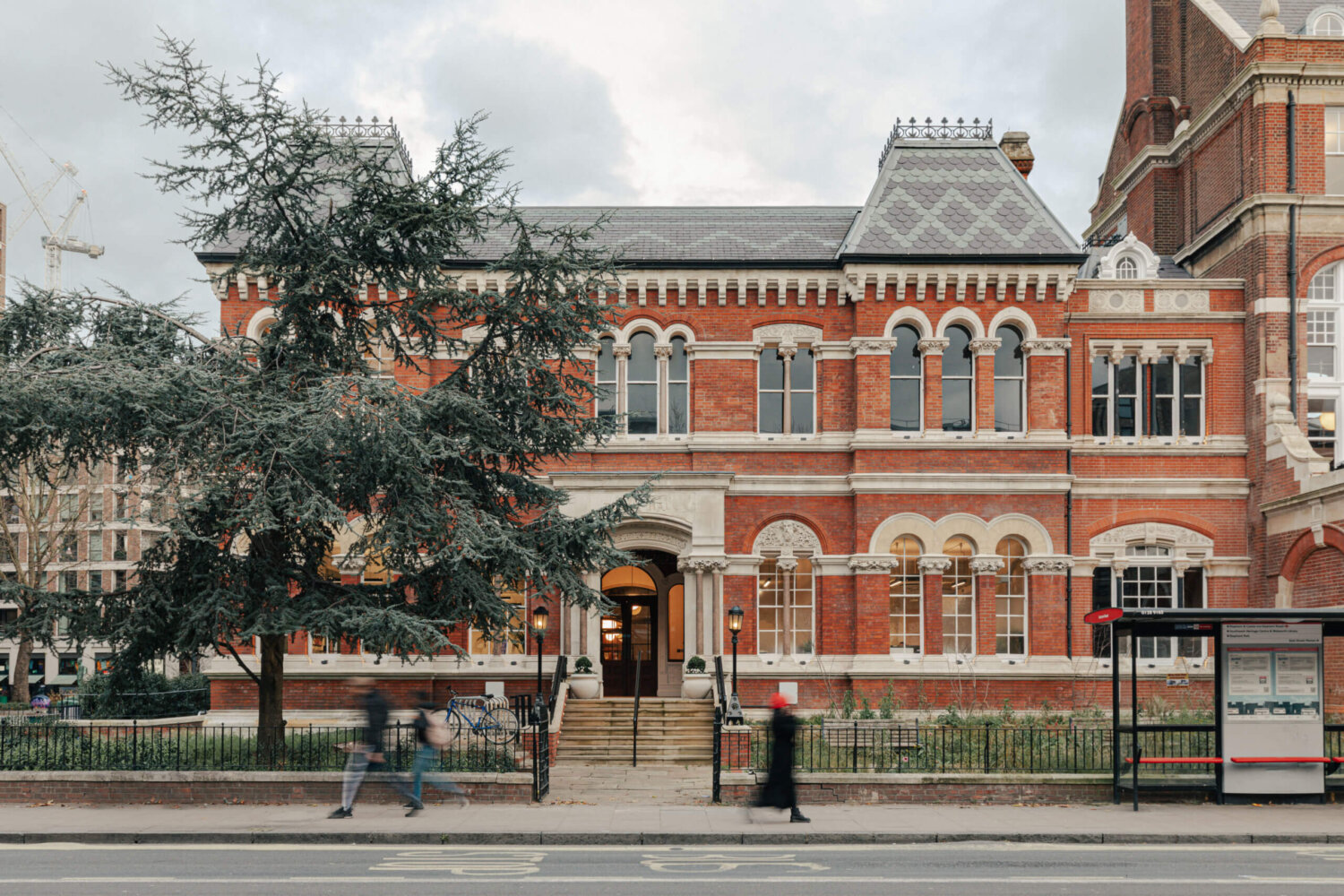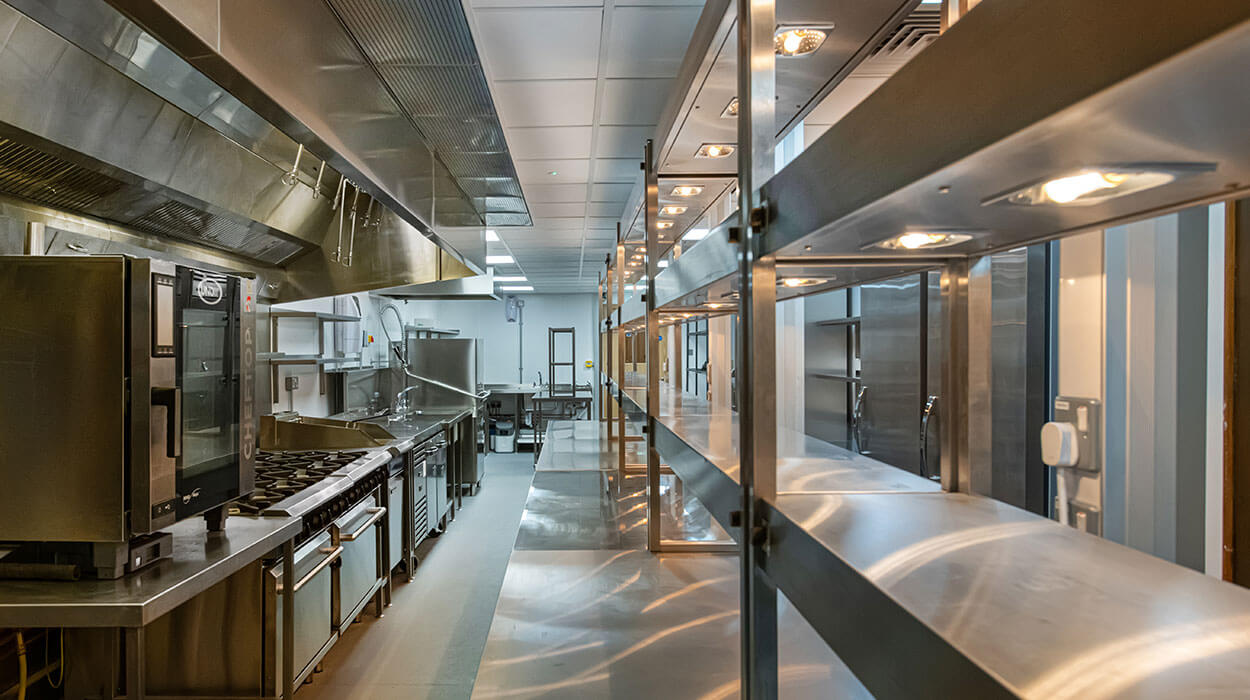How can an effective commercial kitchen design help you save money?
PUBLISHED: 23/05/2023
Money saving has never been so important in the hospitality industry and over the last few months the Chiller Box team has been sharing lots of advice. This month we’ve been exploring how you can implement money saving ideas at the design stage. By working closely with a commercial kitchen designer, you can find ways to reduce costs in the long-term.
Induction cooking
Induction technology in the food service industry is nothing new, but it is still under-utilised due to chef preference or older cooking styles. The use of green fuels over fossil fuels has more than just ecological benefits, it also has financial benefits.
This technology changes how chefs use cooklines; no longer are they coming in, turning all the burners up full and leaving them on throughout service. With induction, when a pan is on the range, it will induce a current and heat the pan. As soon as this pan has been lifted out of range, it stops utilising energy, and is therefore saving money.
This energy is also directed straight to the pan, not to the range or surrounding environments, which increases efficiency of cooking. Another benefit of induction cooking is cooler kitchen conditions, creating a nicer working environment for your team.
Waste management
This is not a topic that is exciting or glamorous but the waste we produce within the hospitality sector is an expensive business. With restaurants and hotels paying upwards of £200 a week for bin collections, and local councils increasing these fees, innovation is required in order to reduce waste.
Installing systems like Ecofast’s macerating and de-watering systems into prep and wash areas reduces organic waste volumes by 80%. This vastly reduced waste can then be turned into compost. If you then use it to grow herbs for your menu, it can add value and create a great story.
Waste oil can be re-refined and converted into bio-fuels which furthers the life of this product. Adding grease management systems can all add to this. Systems like EPAS Grease Shield can be added in line to any effluent runs and will separate foreign objects and grease from the grey water.
Another commercial option is deploying Artificial Intelligent (AI) systems like Winnow, that scan organic waste scraps from preparation areas. This process will then calculate percentage waste and produce KPI’s helping an executive chef to control waste across the kitchen.
Energy optimisation
Discussing energy usage in 2023 is a scary and frightening topic for a hospitality business. We regularly hear about operators reducing opening hours or even shutting shop due to running costs exceeding income.
It’s important to think about the long-term costs over short term when buying equipment as some can create a false economy. Choosing the wrong equipment may result in buying twice because of the lower quality, and for some equipment that may first appear energy efficient, the running costs can be considerably more throughout its lifespan.
Installing catering monitoring systems, like Monika, can also produce reports on operation times, door opening times, programmes used etc. This will help senior chefs to train and educate their brigades on the usage of the equipment. It can also extend to service intervals to make sure equipment is running in optimal condition. All of these factors will impact the running of an appliance whether that’s a combi oven, induction range or a walk-in cold-room.
Virtual Reality (VR) design
As we progress through the twenty first century, one industry that is showing no signs of plateauing is Information Technology. Graphics cards and PCs are getting ever stronger which means technology like virtual reality is becoming more widely adopted.
VR has now ventured into the catering industry. This allows the client to enter a virtual space, and walk through these kitchens, serveries or café spaces before even taking the keys to the new property.
Having the ability to feel what a space will be like, prior to building work starting, really allows detailed development of a scheme without the client wasting any valuable investment on a theme that doesn’t further enhance the food experience.
Artificial Intelligence (AI) and Machine Learning (ML)
With ongoing efforts to drive efficiencies and shorter queue times, it is imperative to explore the implementation of Artificial Intelligence (AI) and Machine Learning (ML). Implementing these technologies will reduce costs, remove errors, and enhance guest experiences.
AI can be utilised throughout the back of house (BoH) operations including: –
- Intelligent ordering, with the addition of ML, to aid prediction in customer trends to reduce over-purchasing.
- Measuring organic waste during preparation operations to further fine-tune portion sizes and customer preferences.
When used front of house (FoH), AI technology will enhance the experience and service times via:
- Self-service checkout using cameras to scan purchases; AI can then total and bill this data automatically.
- Combined with mobile ordering, autonomous ‘waiters’ can deliver food directly to the customer’s location.
If you would like to learn more about how our designs can help you to save money in your workplace, then please contact us.

